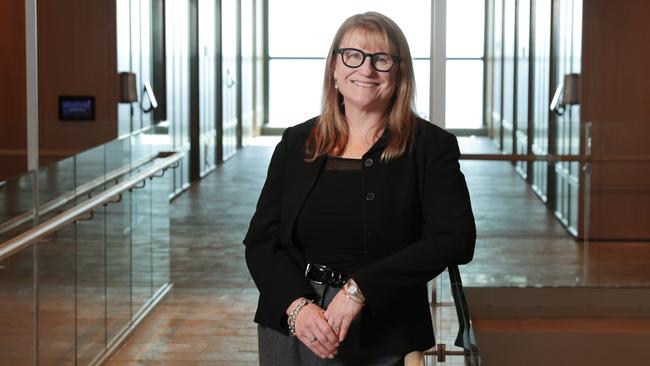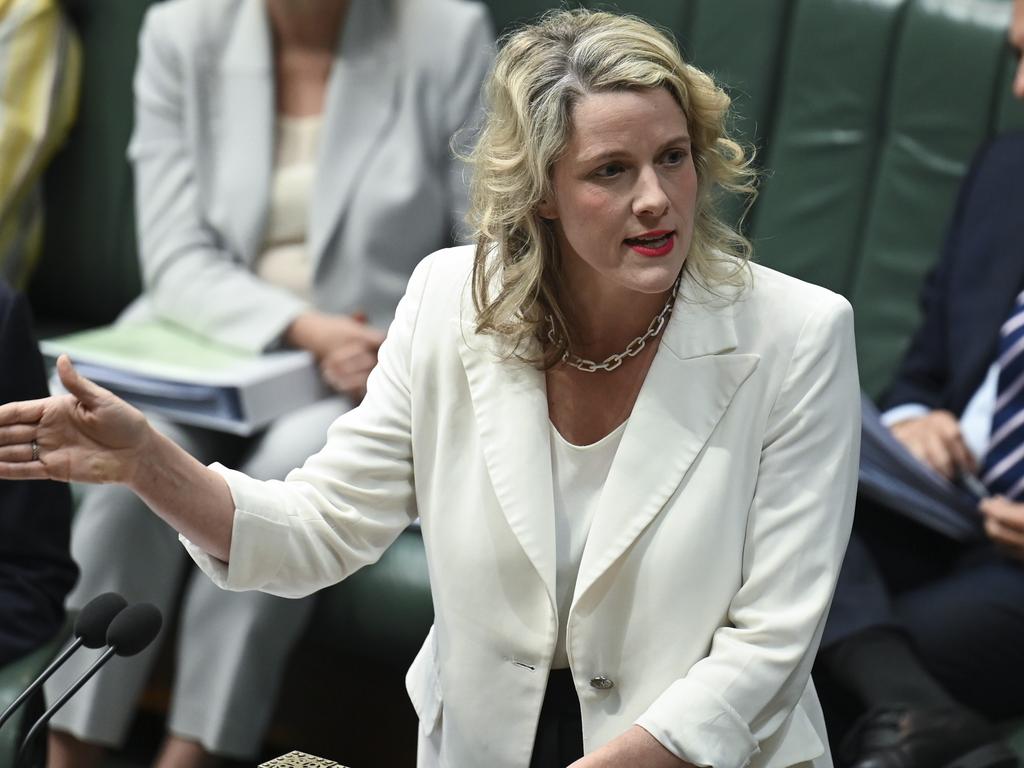Energy and employment reforms make it rain for lawyers
A wave of new Labor regulation in everything from industrial relations to cyber security is protecting hundreds of lawyers from job cuts in the profession.

A wave of new Labor regulation in everything from industrial relations to cyber security is protecting hundreds of lawyers from job cuts in the profession, as salaries jump by as much as 12 per cent due to demand to navigate the federal government’s legislative reforms.
Exclusive salary data provided to The Australian by legal research firm Eaton shows the areas that recorded the greatest salary growth correlate with areas of government reform, with employment and energy seeing some of the greatest upticks, despite forecasts for drastic budget cuts following mass layoffs across the global market.
Baker McKenzie national managing partner Anne-Marie Allgrove said government reforms were driving business to Australian law firms, with the company’s “busy” employment lawyers seeing some of the largest influx in work.
“I’ve often said to people, I’m going to come back as an employment lawyer, because … there has been lots of reform and they’re always busy,” she said. “Obviously the Respect@Work legislation and a whole host of different things (are) coming through.”
The Australian on Wednesday revealed that employees who sue companies over sexual harassment and discrimination claims would not have to pay their bosses’ legal fees if unsuccessful – a provision business groups believe will turbocharge activist litigation – under a bill introduced in response to former Sex Discrimination Commissioner Kate Jenkins’ landmark Respect@Work report.
Ms Allgrove, who became the first female national managing partner of the global firm this year, said the firm’s cybersecurity and data privacy teams were seeing growth due to ongoing reforms flooding parliament, despite widespread redundancies plaguing technology companies.
“The tech industry hired huge amounts of people, and we’ve seen that now huge amounts of layoffs are happening … that’s an area that has been much quieter,” she said.
“Although … cyber is an issue. If you come back to reform, the technology space is an area where there’s been a lot of reform, particularly in Australia. If you look from an online perspective and the digital platforms – digital platforms review, e-safety, tax reform in the digital space – we are seeing activity in all of those areas, but other areas in relation to technology are less.”
Ms Allgrove added that work with renewables had created a large boom across the firm. Baker McKenzie this year poached a nine-person team from competing firm Norton Rose Fullbright to help carry the increased workload.
The Australian legal market was forecast to follow the lead of the US and suffer a spike in redundancies, bonus cuts and lower rates of hiring. One of the oldest US firms, Cadwalader Wickersham & Taft, in April reportedly let go of about 30 business professionals and 15 associates, while Cooley, Goodwin Procter, Stroock & Stroock & Lavan and Shearman Sterling all let go of staff, citing a slowdown of work.
However, Eaton legal services partner Shaaron Dalton told The Australian this never eventuated due to the Albanese government reforms keeping lawyers in jobs.
“Lawyers are like cockroaches, they can weather any storm,” she said.

Employment lawyers saw salary increases of about 10-12 per cent, while energy and resources, financial services and litigation lawyers saw similar jumps. Meanwhile, lawyers in technology, corporate and insurance saw only moderate salary bumps of about 3-7 per cent.
Ms Dalton said changes to workplace laws would also ramp up business for lawyers, after Employment and Workplace Relations Minister Tony Burke introduced legislation in September to crack down on exploitation of workers by labour-hire firms, provide minimum standards for gig workers, criminalise wage theft and propose a fair definition to determine a casual employee.
“Those new laws in the workplace space to give unions more power … well, that’s clearly going to require lawyers to advise the businesses and to deal with the fallout,” she said. “There are all these new things coming into play like psychosocial safety, investigations in the workplace.”
Energy, construction, housing and cybersecurity were also forecast for growth, Ms Dalton said.








To join the conversation, please log in. Don't have an account? Register
Join the conversation, you are commenting as Logout